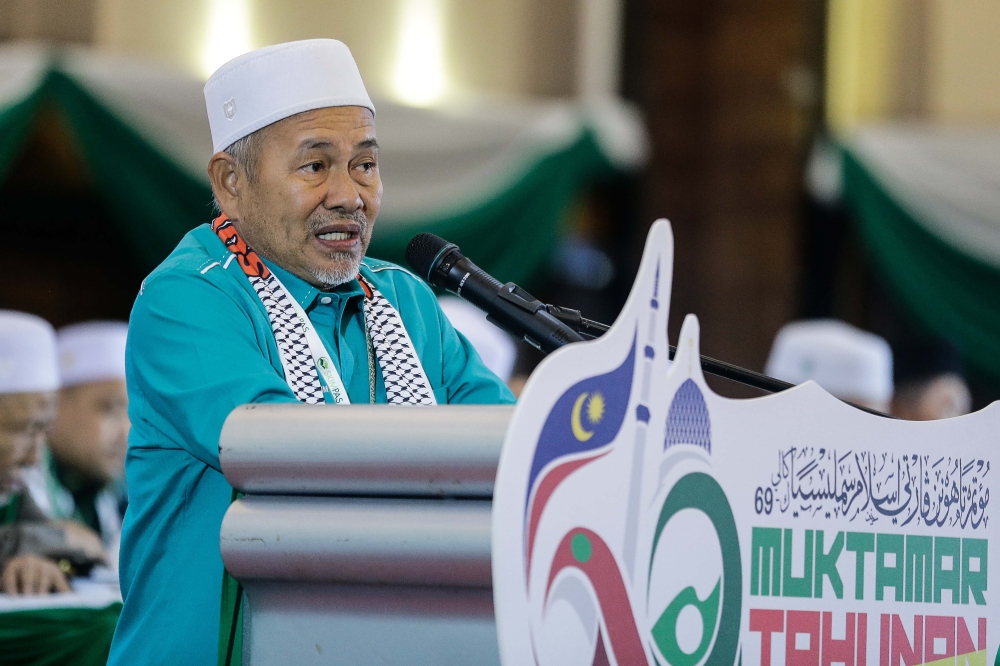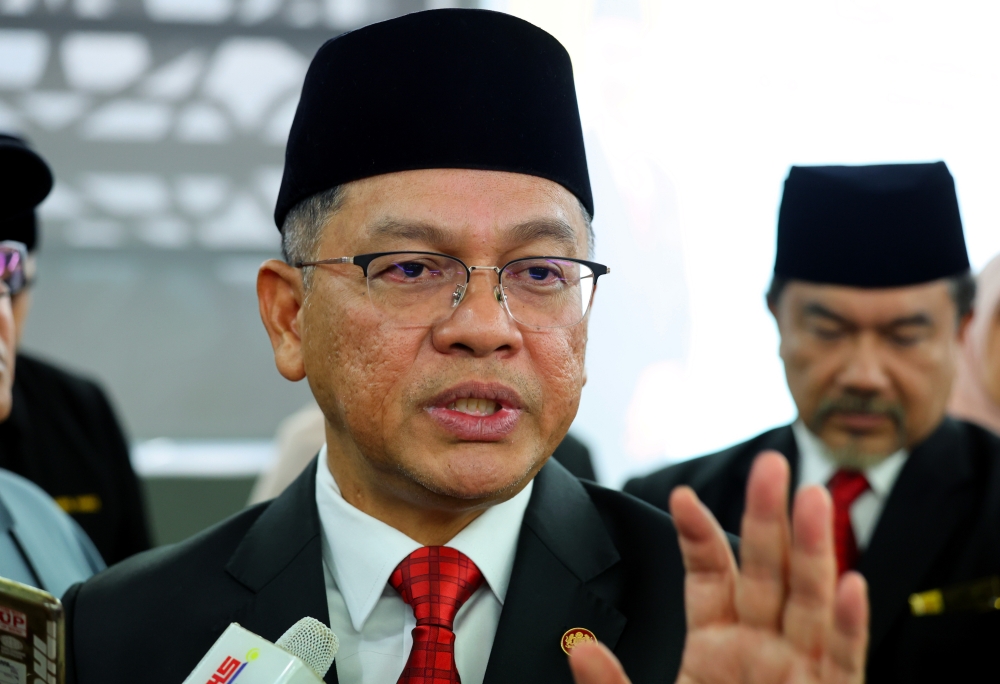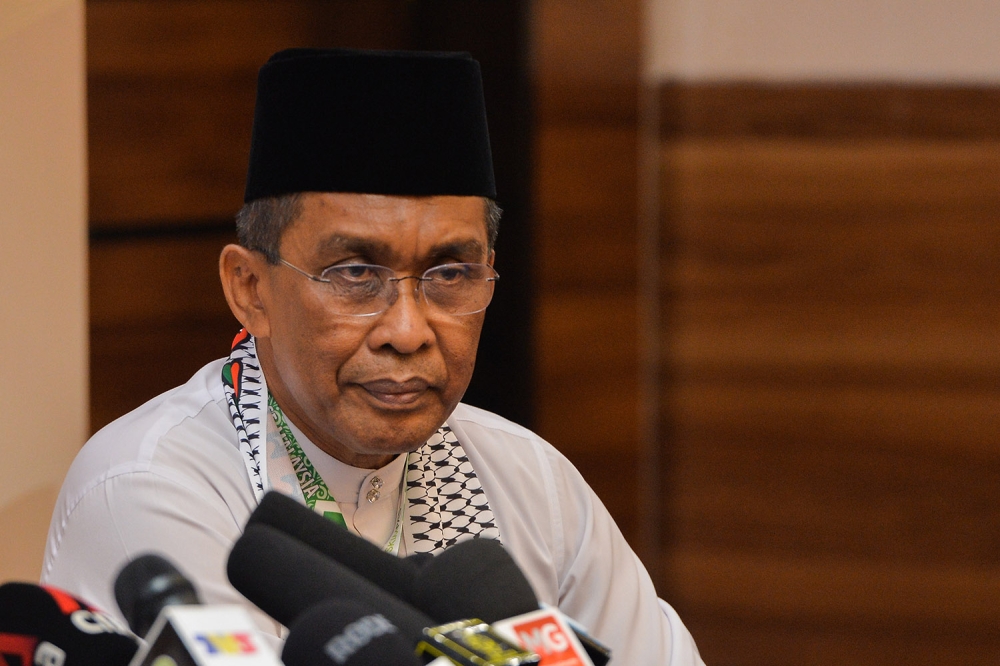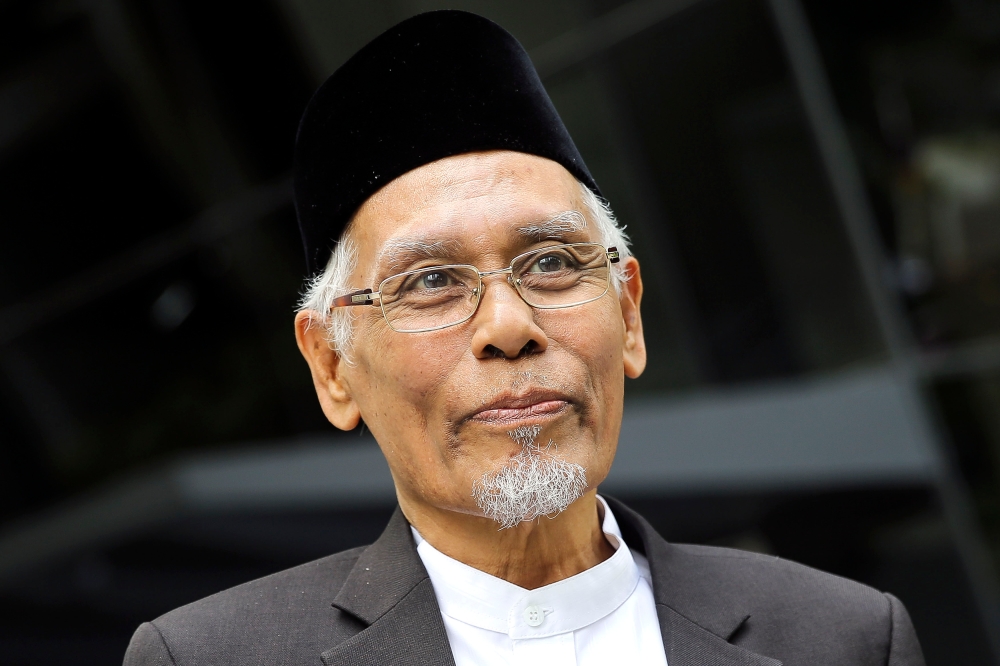KUALA LUMPUR, April 6 — The statement of the Malaysian Consultative Council of Buddhism, Christianity, Hinduism, Sikhism and Taoism (MCCBCHST) regarding the amendment of Syariah Courts (Criminal Jurisdiction) Act 1965 [Act 355] is misleading and may create an atmosphere of disharmony in the country .
Minister in the Prime Minister’s Department (Religious Affairs) Datuk Mohd Na’im Mokhtar in a statement today advised all parties to uphold the decree of the Sultan of Selangor Sultan Sharafuddin Idris Shah on December 29 last year that the people, especially those who are not Muslim, respect and not to interfere in matters related to Islamic religious affairs in Malaysia.
“All parties are urged not to make any ‘speculative’ and ‘pre-emptive’ statements in relation to the proposed amendment to the Syariah Courts (Criminal Jurisdiction) Act 1965 when it has not yet been tabled in Parliament.
“Once it is tabled, all Members of Parliament will be given sufficient space to debate this amendment,” he said.
Mohd Na’im also said that all parties need to refer to Article 74 (2) of the Federal Constitution which is read together with Item 1 of the State List of the Ninth Schedule of the Federal Constitution which in accordance with the said provisions of Shariah Courts have been established through Acts/Enactments/Ordinances in the states.
According to him, for the purpose of dealing with offences under shariah law, the Shariah Court only has jurisdiction over Muslims and only in respect of all matters included in item 1 of the State List of the Ninth Schedule of the Federal Constitution.
Shariah Courts have jurisdiction over offences to the extent provided by federal law as specified in item 1 of the State List of the Ninth Schedule to the Federal Constitution.
In line with this provision, Mohd Na’im said Parliament had formulated the Syariah Courts (Criminal Jurisdiction) Act 1965 which gave criminal jurisdiction to the Shariah Courts.
He said based on item 1 of the State List of the Ninth Schedule of the Federal Constitution, there are two main points outlined.
Firstly, the power of the State Legislature to enact laws to establish offences and punishments for offences committed by Muslims against Islamic religious orders, except for matters included in the Federal List.
Secondly, jurisdiction over punishment for offences provided for in State law shall be within the limits provided by federal law.
“This means, the Federal Constitution empowers the State Legislature to enact laws in the states to create offences and punishments for offences by Muslims against the Islamic religious order, except for matters included in the Federal List.
“Although shariah criminal offences are enacted by the State Legislature, it must be understood that the punishment for offences provided for in state law must be within the limits given by the federal law which is the Syariah Courts (Criminal Jurisdiction) Act 1965,” he said.
He said the proposed amendment to the Syariah Courts (Criminal Jurisdiction) Act 1965 cannot be interpreted as allowing the State Legislature to create offences and punishments in respect of matters included in the Federal List of the Ninth Schedule to the Federal Constitution.
He said this is because the State Legislature must be subject to the jurisdiction of legislation provided under Clause (2) Article 74 and item 1 of the State List in the Ninth Schedule of the Federal Constitution.
Mohd Na’im said any proposed amendment to the Syariah Courts (Criminal Jurisdiction) Act 1965 would not change the legislative powers already allocated by the Federal Constitution to the State Legislatures.
At the same time, he also confirmed that the Prime Minister’s Department (Religious Affairs) is committed to strengthening the position of the Shariah Court and Shariah law in this country based on the framework of the Federal Constitution. — Bernama





















